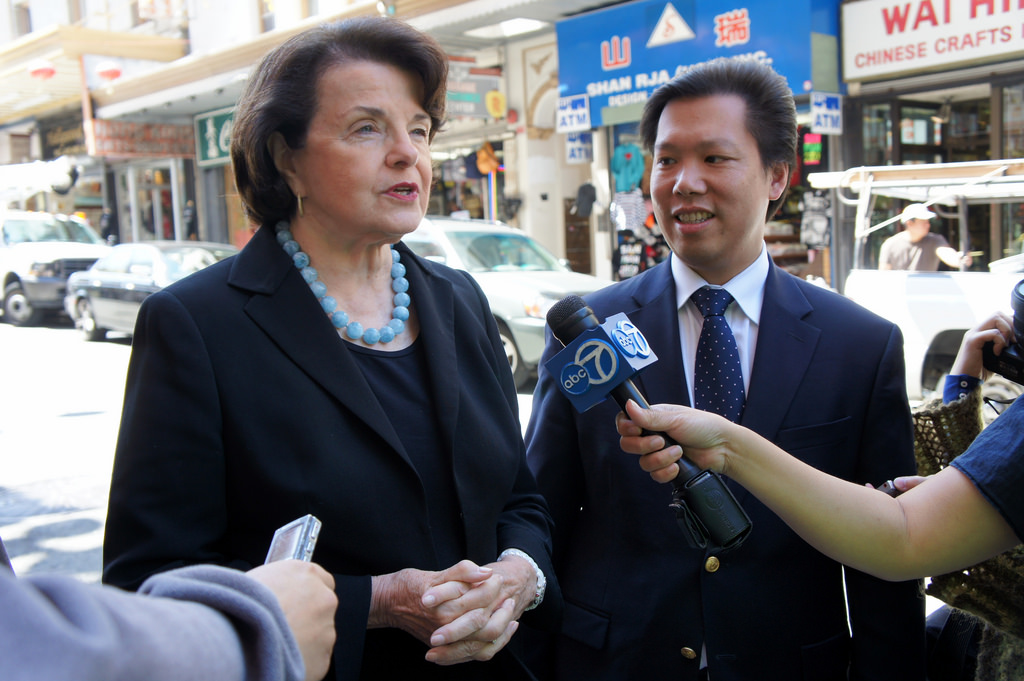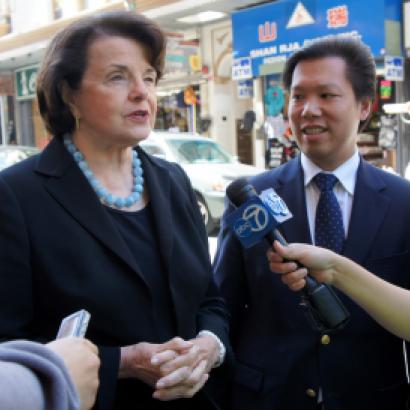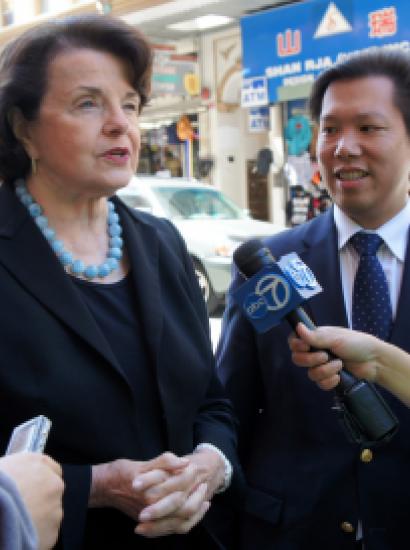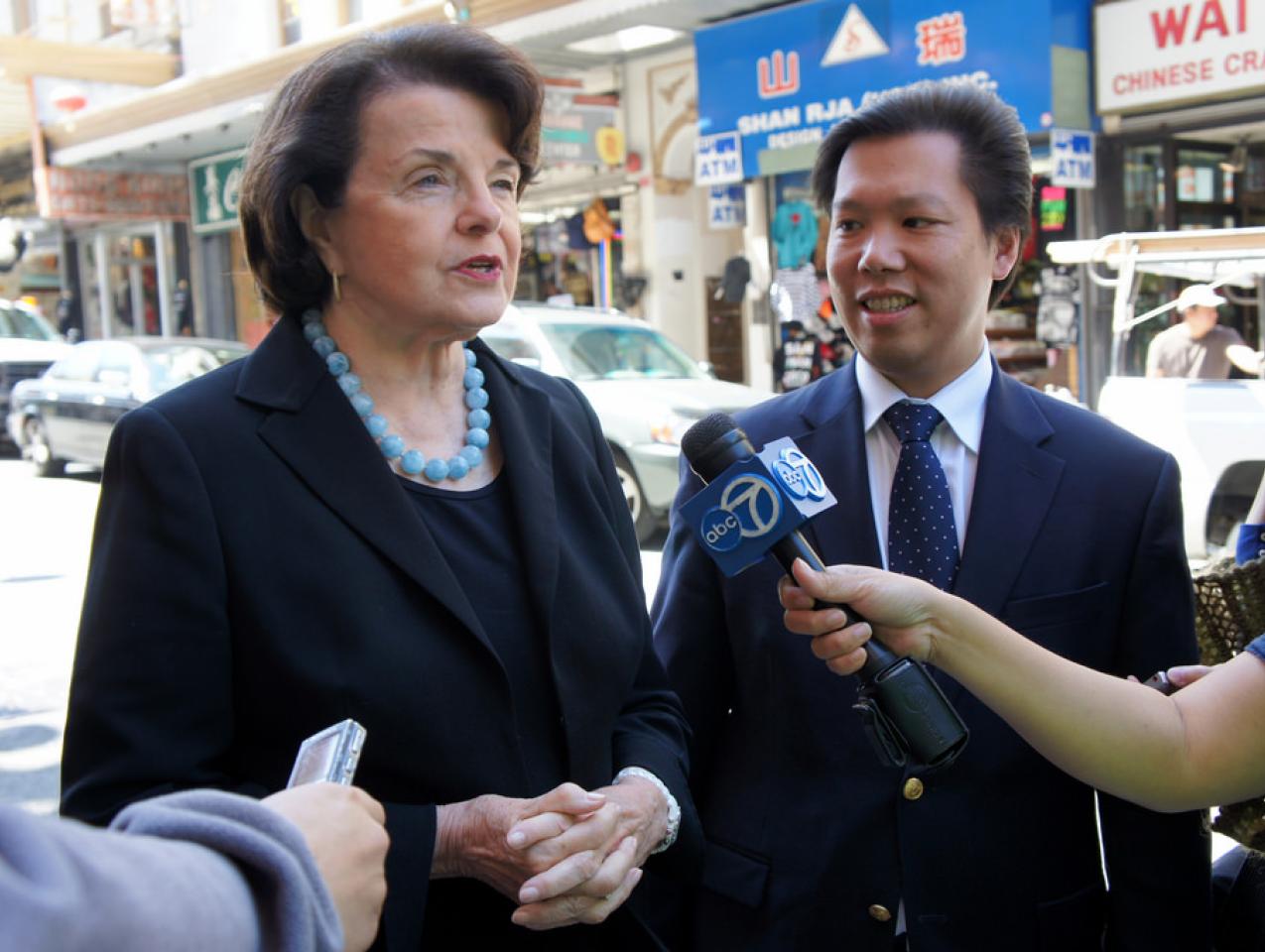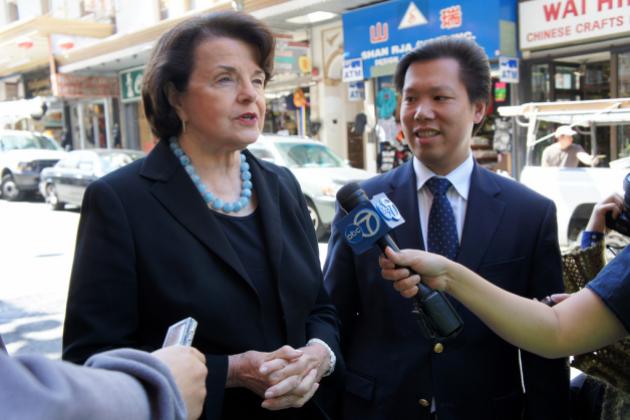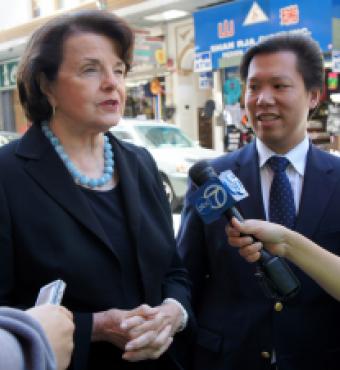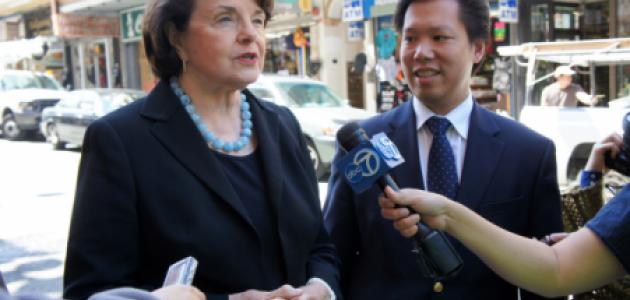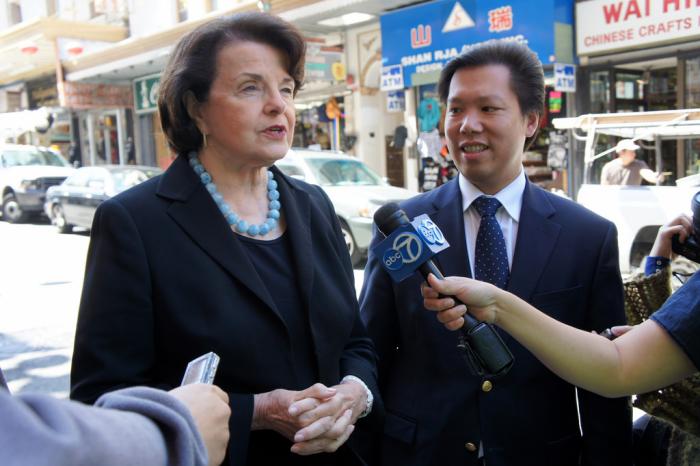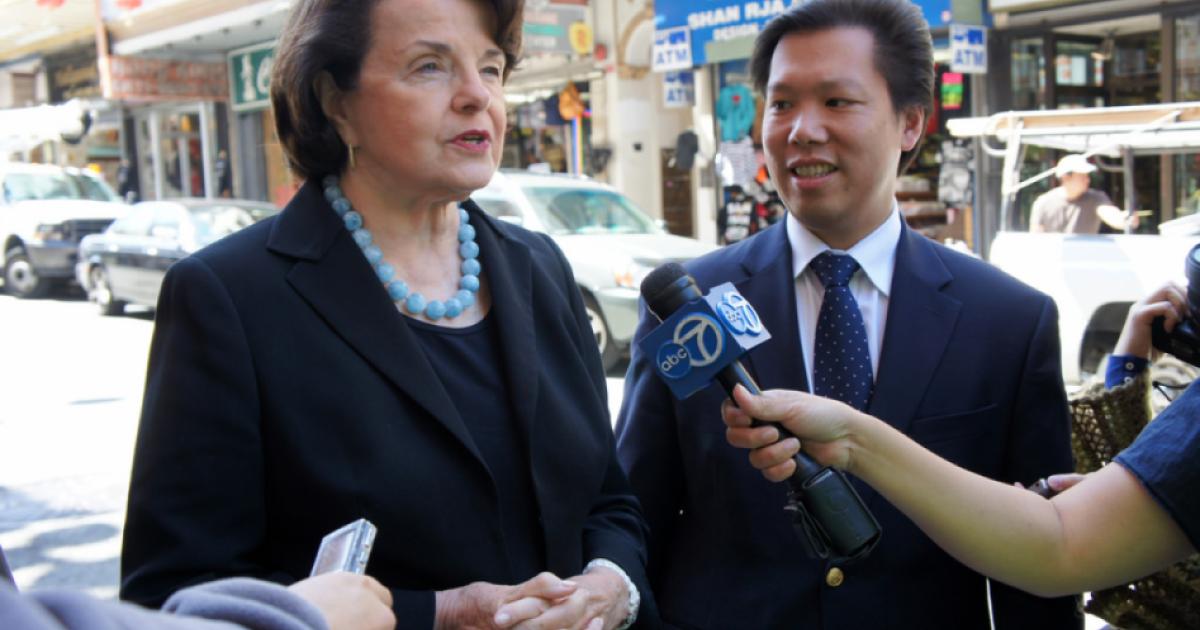If you’ve followed the coverage of California senator Dianne Feinstein in the aftermath of her passing last week, then you’re likely well aware of her historical significance in Golden State politics: multiple glass ceilings shattered during a career in public service that spanned six decades.
And, if you’re a true political junkie, you may also know that her death raised the possibility of a genuine stink within an otherwise stately US Senate—the ruckus coming if Senate Republicans were to change their minds and try to keep Feinstein’s seat on the body’s Judiciary Committee vacant, thus creating a deadlocked panel that could stymie President Biden’s judicial nominees.
Given the avalanche of attention to the late senator’s life and times, here are three items for your consideration:
It’s Good to Be the King (of California). Granted, Gavin Newsom is an elected governor, not a monarch. Still, Feinstein’s death points to the advantage Newsom enjoys in issuing office appointments (if not royal edicts).
At the end of his second year in office (2020), Newsom found himself in the same spot he was in this past week—having to name an interim US senator. That vacancy occurred after the last presidential election, when then senator Kamala Harris became the nation’s vice president–elect. Newsom’s choice to hold her seat until the next statewide election in 2022: Alex Padilla, at the time California’s secretary of state.
But as Padilla’s departure for Washington left that state constitutional office vacant, Newsom got to make a second pick. His choice to replace Padilla as the state’s chief election officer: Shirley Weber, at the time an assemblymember and chair of the Legislative Black Caucus (the appointment making Weber the first Black woman to serve as California’s secretary of state).
And then one more vacancy occurred when state attorney general Xavier Becerra accepted president-elect Biden’s offer to serve as federal health and human services secretary (Becerra becoming the first Latino to head that department). Newsom’s pick to replace Becerra as California’s “top cop”: then assemblymember Rob Bonta, the first Filipino American to hold that office.
One way to look at this: four high-profile political appointments (including the Feinstein replacement) make for plenty of distraction from gubernatorial business as usual— plus potentially generating the risk of political backlash from the various factions being left out (more on that in a moment).
But seen from another angle: Newsom now has two US senators, plus California’s top law enforcement official and the individual who oversees elections, all owing their current jobs to him. Which comes in handy if one needs favors in the halls of Congress, in California’s courts, or on the ballot (the secretary of state’s office verifies voters’ signatures to ballot initiatives and oversees statewide vote tallies) . . . not to mention presidential ambitions (Laphonza Butler, Newsom’s choice to replace Feinstein, is a former head of the fundraising juggernaut EMILY’s List).
Indeed, it’s good to be the king of California.
A Royal Blunder? You probably noticed the trend among Newsom appointments: choosing social “pioneers.” But sometimes that comes with a price, which Newsom discovered when he chose Padilla rather than a Black woman to replace Harris in the US Senate (Harris is of Jamaican and Indian American descent).
Newsom’s response: tell the world that, in the outside chance that Feinstein couldn’t complete her term, he’d choose a Black woman as an interim replacement—a promise he first made in March 2021 and didn’t take back as Feinstein’s condition worsened and while political intrigue grew as to whether he’d keep the pledge.
Newsom’s preconditions for the Senate pick leave him open to at least two avenues of criticism, the first being that the “honor” is tainted by the governor’s insistence that the choice would be someone who (a) is not presently an active candidate in California’s March Senate primary and (b) won’t stay in the job past the next general election—i.e., someone willing to accept a dead-end job (Newsom is now waffling on that requirement). As Erica Smith of the Los Angeles Times opined: “It seems Newsom has deluded himself into believing that the powerful Black women in his midst who wanted that seat [in 2021] will take another consolation prize. And that it won’t have any repercussions for him when—not if—he runs for president and needs the support of Black voters in other state.”
The second criticism: Newsom’s pandering to one voting bloc prevented him from doing something classier (in my opinion) and in honor of the late senator: appointing her daughter Katherine, a former judge and currently president of San Francisco’s Fire Commission, to complete her mother’s final Senate term. (Though not an exact comparison, eight widows have replaced their husbands as US Senator in the past 90 years.)
A Tale of Two Cities. Feinstein’s “state” funeral in San Francisco (she lay in state in City Hall before today’s service) also served as a brief respite from the city’s upcoming mayoral race (Feinstein served as San Francisco’s mayor from 1978 to 1988).
To say it was a different San Francisco during Feinstein’s tenure would be an understatement (a good starting point would be reading David Talbot’s Season of the Witch, followed by binge-watching Clint Eastwood’s Dirty Harry and The Streets of San Francisco, a television cop show featuring a young Michael Douglas).
In sum, what the world saw on large and small screens was a grittier, working-class city riddled with crime—not the gentrified, tech-centric, 21st-century version of the same city . . . likewise riddled with crime (San Francisco dubbed “Bip City” for its rampant auto break-ins and theft).
On the other hand, some San Francisco dynamics — starting with angry progressives who are anything but pro-military — haven’t changed from Feinstein’s mayor days.
Take, for example, Feinstein’s attempt back in 1987 to have the battleship Missouri homeported in her city—and give the local economy a $100 million boost, as she claimed at the time. What she encountered was an angry Left that claimed the mayor was turning a blind eye to environmental concerns as well as the US Navy’s policy toward the gays in the military (grounds for dismissal). Add to that a smattering of misogyny—Feinstein haters coming up with this tasteless poster lampooning the mayor as a sailor-loving strumpet.
But Feinstein also committed her share of mistakes as mayor—a big one being that she dismissed homelessness as a “temporary” problem. Fast-forward to 2023 and Senator Feinstein introducing a bill “to address root causes of homelessness.” (Newsom fell into a similar trap during his two terms as San Francisco’s mayor, with 2023 marking the 20th anniversary of his promising to end the city’s homelessness scourge in 10 years.)
Speaking of anniversaries, next January marks the 80th anniversary of Roger Lapham’s taking the oath as San Francisco’s 32nd mayor. Lapham is remembered for at least two reasons, one being that he was the subject of failed recall election, in the summer of 1946, after his administration added an extra three pennies to the cost of a trolley ride (raising the price from seven to ten cents a ride).
But Lapham stands out for something else: political independence. A former steamship company president and founder of Monterey’s Cypress Point golf course, he happens to be the last San Francisco mayor who didn’t come to office as a product of the local political machine (having never held a prior elected or appointed office)—a candidate elected by voters on the promise that he wouldn’t seek reelection.
To the extent there’s an “outsider” in San Francisco’s present mayoral race, the candidate closest to that descriptor would be Daniel Lurie, a longtime nonprofit executive and an heir to the Levi Strauss & Co. fortune, who announced his candidacy two days before Feinstein’s death. His platform: fully staff the city’s police force, end open-air drug markets, bring businesses back to San Francisco—i.e., a similar approach to that of Rick Caruso, the Los Angeles businessman who tried (and failed) to win that city’s 2022 mayoral race by tapping into voters’ frustration with dysfunctional government.
On the same day that Lurie formalized his run, San Francisco mayor London Breed unveiled a proposal requiring the city’s welfare recipients to submit to drug testing. In her words: “No more handouts without accountability. People are not accepting help. Now, it’s time to make sure that we are cutting off resources that continue to allow this behavior.”
Lurie’s reaction? This statement blasting the mayor for “dangerous headline chasing that will increase crime.”
The Breed-Lurie contest may turn to out to evoke the Feinstein era’s tumultuous times, with two candidates sparring over the city’s safety, growth, and moral fiber.
One wonders what Dianne Feinstein would think—about the candidates in the race and their ability (or lack thereof) to turn around her beloved city’s declining fortunes.







